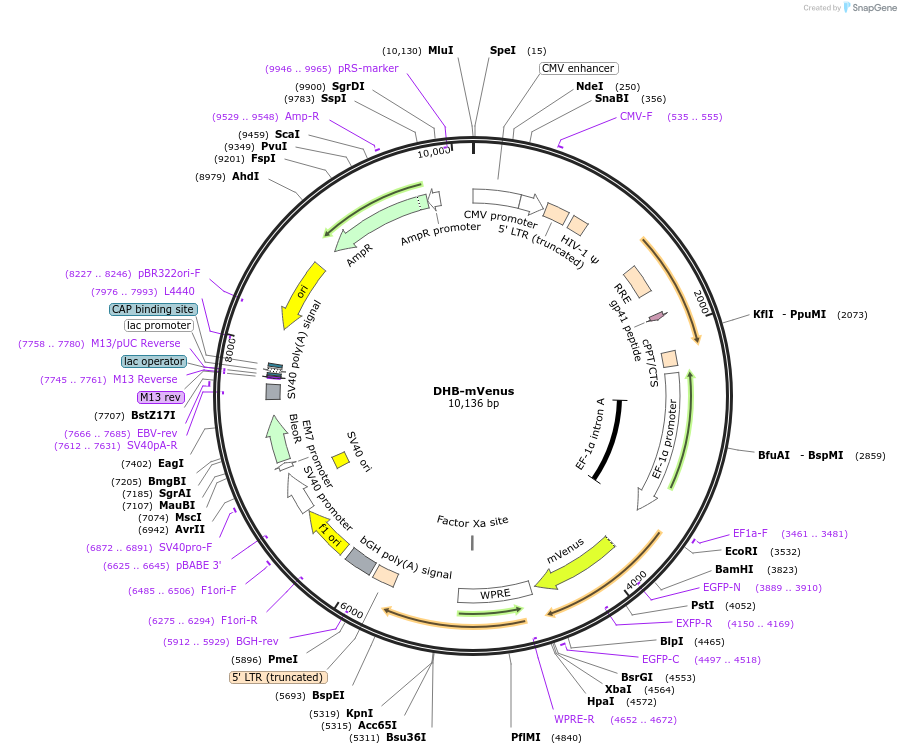-
PurposeFluorescently tagged segment of DNA Helicase B that translocates from the nucleus to the cytoplasm in response to phosphorylation by CDK2
-
Depositing Labs
-
Sequence Information
Ordering
| Item | Catalog # | Description | Quantity | Price (USD) | |
|---|---|---|---|---|---|
| Plasmid | 136461 | Standard format: Plasmid sent in bacteria as agar stab | 1 | $85 | |
Backbone
-
Vector backboneCSII-EF-MCS
- Backbone size w/o insert (bp) 9136
- Total vector size (bp) 10159
-
Vector typeLentiviral
Growth in Bacteria
-
Bacterial Resistance(s)Ampicillin, 100 μg/mL
-
Growth Temperature37°C
-
Growth Strain(s)NEB Stable
-
Copy numberUnknown
Gene/Insert
-
Gene/Insert nameDNA Helicase B
-
Alt nameDHB
-
SpeciesH. sapiens (human)
-
Insert Size (bp)1023
-
Entrez GeneHELB (a.k.a. DHB, hDHB)
-
Tag
/ Fusion Protein
- mVenus (C terminal on insert)
Resource Information
-
Articles Citing this Plasmid
Terms and Licenses
-
Academic/Nonprofit Terms
-
Industry Terms
- Not Available to Industry
Trademarks:
- Zeocin® is an InvivoGen trademark.
These plasmids were created by your colleagues. Please acknowledge the Principal Investigator, cite the article in which the plasmids were described, and include Addgene in the Materials and Methods of your future publications.
-
For your Materials & Methods section:
DHB-mVenus was a gift from Tobias Meyer & Sabrina Spencer (Addgene plasmid # 136461 ; http://n2t.net/addgene:136461 ; RRID:Addgene_136461) -
For your References section:
The proliferation-quiescence decision is controlled by a bifurcation in CDK2 activity at mitotic exit. Spencer SL, Cappell SD, Tsai FC, Overton KW, Wang CL, Meyer T. Cell. 2013 Oct 10;155(2):369-83. doi: 10.1016/j.cell.2013.08.062. Epub 2013 Sep 26. 10.1016/j.cell.2013.08.062 PubMed 24075009





